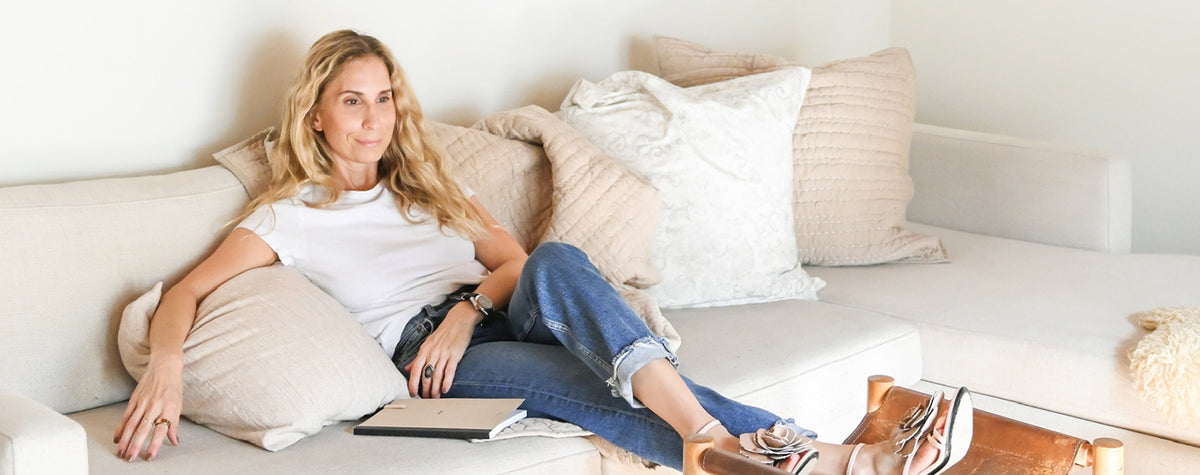
Better In Bed
Mindful Writing with Journaling Expert Laura Rubin of AllSwell Creative
PHOTOS BY: Trina Yin
WORDS BY: @lauralrubin
Whether it’s AM or PM, the place most people tend to journal is in bed. So when Coyuchi asked me to provide some tips on how to get the most out of a pen-to-paper practice, it made intuitive sense. I was happy to oblige.
Night Light
Trouble sleeping? I recommend evening journaling for anyone looking to fall asleep more easily, lengthen / deepen their R.E.M. time, or generally looking for more restorative rest (who isn’t?).
Specifically, writing down the things you need to do the following day before you go to bed has been proven to improve the quality of your sleep. You’re parking it on the page instead of bringing all those pending items into your dreamtime. It doesn’t need to take long, even 5 minutes will do. This simple exercise stops the cycle of rumination and reduces cognitive arousal. You’re giving yourself the opportunity to get more nourishing rest.
But please, no screens. Not only is blue-light disruptive to your sleep cycle, you’re missing out on the positive benefits of moving your hand across the page. The kinetic movement creates connections in your brain, providing the greatest value. So log off for the sweetest dreams.


Morning, Sunshine
From the moment we fire up our phones we’re in a near-constant state of react-and-respond. Journaling helps override attention-stealing devices, offering a way to operate from a more grounded, meaningful place.
Using a prompt can expand your practice beyond stream-of-consciousness scribblings. I created The Deck of journaling prompts so you don’t need to start from a blank page. Here are a few to help you kick-start your morning:
- Wherever you are right now, drop into your senses. What do you hear, smell, taste, feel, see?
- What’s a goal you’ve outgrown?
- When was the last time you tried something new? What new (but maybe uncomfortable) things do you want to do?
- What does your body want to say to you?
You can also use a poem, a quote, a song or even a piece of art (in a book or otherwise) as a prompt. Spend a moment with it, observe what thoughts, images or recollections float up. Write from that place.
Whether you crack a notebook straightaway or come back to bed with your cup of caffeine, putting pen-to-paper in the morning is a powerful tool for focusing intent, clarifying vision and setting you up for the day ahead.

